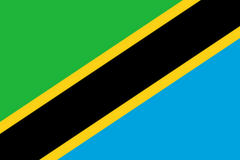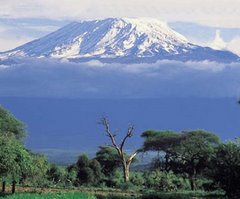2008-04-30, 09:25:03
By Gadiosa Lamtey
Prominent scholars have said immediate former president Benjamin Mkapa could be taken to court if there is enough evidence linking him to abuses of office. The scholars, among them reputable lawyers, said in interviews yesterday that the abuses would include fishy transactions in the public service entered into during his ten-year administration. The retired third-phase president is one of the most high-profile targets of rapidly circulating reports relating to grand corruption allegations. One is that he and Daniel Yona, once Energy and Minerals minister under him, bought the 4bn/- state-run Kiwira coal mine at a paltry 700m/- but ultimately paid a mere 70m/- for it. Tanzania`s constitution stipulates that the country`s sitting president enjoys immunity from criminal and civil proceedings in respect of anything done or not done in his or her personal capacity as an ordinary citizen. The law also prohibits people from instituting criminal or civil proceedings for anything done or not done in his or her capacity as president even after he or she is no longer in power. But some Dar es Salaam-based lawyers contacted for comment on the issue yesterday said, the provisions of the constitution notwithstanding, the government is still obliged to take legal action against any former president using his or her office for personal gain. The legal experts interviewed observed that, in accordance with the Presidential Affairs Act, Mkapa`s immunity may be waived if he would be proven to have deliberately abused his office. Legal and Human Rights Centre (LHRC) Executive Director Hellen Kijo-Bisimba said the Act can only protect a president executing his or her official duties at the State House ``but the law provides for the president to be taken to task when it is proved that he or she used the public office to do private business``. Kijo-Bisimba expressed hope that the ongoing investigations into the allegations relating to the coal mine?s controversial purchase would come up with the best decision on how to deal with the former president. She pointed out that the National Assembly has the legal mandate to waive president`s immunity when necessary and allow the law to take its course. ``What happened to former Zambian president Frederick Chiluba could happen in Tanzania as well. Just as the Zambian legislature waived Chiluba`s presidential immunity and allowed the government to file a case against him, there could be a similar development here.`` Chiluba is facing a pending criminal case for alleged involvement in the gross misappropriation of public funds when he was president of Zambia. Human rights activist and legal counsel Tundu Lissu observed that the International Criminal Court had categorically stated that the law should not be used to protect presidents or anybody violating human rights or otherwise breaking the law. He recommended that Tanzania`s constitution similarly stipulate that even the president could face legal action once found use his or her (public) office to further personal interests. ``Mkapa has no excuse on this; the government should take him to court and make him respond to the allegations levelled against him,`` he said. Another legal expert, Twaha Tasilima, said: ``It is not always and at all costs that a sitting or former president can be protected by the law. There are situations where the immunity can be revoked if it is believed that he or she misused his or her presidential powers.`` He expressed full support for the decision by the Jakaya Kikwete government to investigate the allegations against the former president ``so that the facts can be known and appropriate legal and other measures can be taken. ``It is a laudable development and the people are eagerly waiting for the outcome of the investigations. Should it mean finally taking the former president to court, then that will serve as a lesson to other prominent public figures to act likewise,`` Lissu pointed out. Prof Mwesiga Baregu, a long-serving don with the University of Dar es Salaam, noted that it was ``prime time for President Kikwete to allow the law to take its course unimpeded by personal interests``. He said the country`s constitution does not allow anyone to break the law and get away with it and agreed with those insisting that the former president should be taken to court to answer the allegations levelled against him. Dr Edmund Sengondo Mvungi, Dean of the university`s Department of Constitutional and Administrative Law, stated that the law actually provided for the impeachment of a retired president. ``The Constitution protects the President when he or she executes his or her official duties at the State House but the law is clear that he or she should be taken to task for conducting private business in contravention of the laws of the land,`` he explained. Dr Mvungi elaborated that the Constitution offered protection to the president only in the course of performing legitimate public duties he is entrusted by the citizenry to perform, ``the duties including inspecting guards of honour but not illegal undertakings``. ``I would strongly recommend that President Jakaya Kikwete decide fast on the next step to take in view of prevailing murky circumstances,`` he said. Prime Minister Mizengo Pinda told the National Assembly late last week that the government had begun working on allegations of abuse of office and other charges levelled against some third-phase government leaders. He said the government was still following up and evaluating the allegations so as to know what exactly happened and that any relevant information would be made public after completion of the investigations. Despite the swelling wave of the allegations and persistent efforts by the media to have him respond to them, the former president has remained unshakably tight-lipped.
SOURCE: Guardian
Wednesday, April 30, 2008
Subscribe to:
Post Comments (Atom)



No comments:
Post a Comment